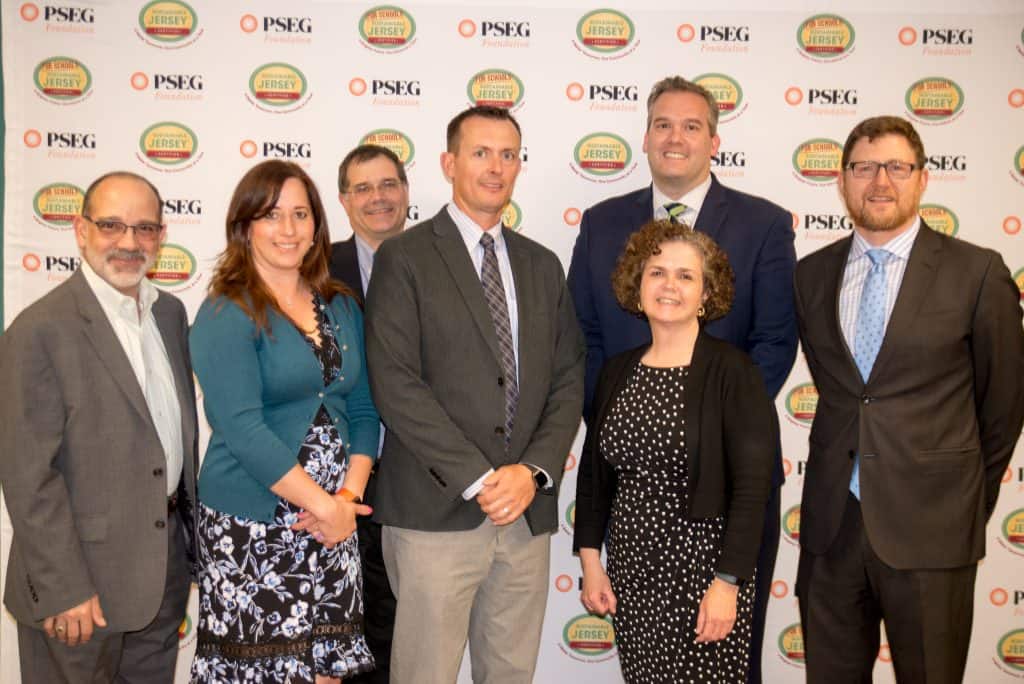

Federal regulations dictate that schools must serve students an item from each food group when they purchase lunch. For that reason, paraprofessionals and teachers at Mary E. Roberts Elementary School watched as students tossed untouched apples, milk cartons and other perfectly good food into the trash.
As of the 2019-2020 school year, Roberts School is making a concerted effort to reduce its food waste. On Wednesday, June 4, the school was presented with a $2,000 grant for Sustainable Jersey for Schools, which will be used to help sort and preserve uneaten food from entering the waste stream. In turn, that food will be donated to the First Baptist Church of Moorestown’s food pantry.
Douglas Maute, who serves on the Sustainable Moorestown Green Team, reached out to Roberts School about getting involved in the Sustainable Jersey for Schools program as an extension of the township’s Sustainable Jersey efforts. The program awards grants to help schools implement sustainability initiatives and programs that will help them to receive Sustainable Jersey for Schools certification.
Principal Brian Carter said the school established its own green team back in 2017, and had implemented some successful programs through Terra Cycle, a recycling company. But the Terra Cycle programs became a bit cumbersome, and so it fell on the teachers and paraprofessionals to implement green programming.
So when Maute reached out, they had the green team in place, but they needed an initiative to kick-start their efforts as they work toward certification. He was approached by Sarah Wilson, a paraprofessional, who had read about the Hamilton School District’s “No Food Left Behind” program. Maute applied for the grant explaining how they would implement the program at Roberts, and in June, they learned they’d be selected.
The money will go toward purchasing refrigerators and heavy duty totes. When the new school year starts in September, there will be signage and paraprofessionals on hand to explain to students how to sort their untouched and unopened food.
At the end of each week, volunteers will transport the food to the First Baptist Church, along with anything the school’s grown in its garden. Maute said they’re also engaged in conversations with Paws Discovery Farm about taking the food that has been partially consumed and using it for animal feed.
Maute said he sees this as a great “first lift” for Roberts, and he and Carter have created an outline of their next steps toward earning bronze certification. He said some of their ideas include purchasing durable flatware to replace plastic utensils, giving every child reusable fabric bags to reduce plastic bags in the waste stream and educating people on their water refill station to help eliminate plastic water bottles.
“Doing these little steps people don’t think about could have big change,” Maute said.
With a pilot program at Roberts, Maute anticipates that other schools in the district could follow suit.
For Carter, the program is a natural extension of their teachings. He said schools have to go beyond teaching just the core curriculum and should be incorporating lessons on sustainability. He said starting these lessons with elementary students gets them into the right mindset early on.
“It’s great to see how everybody is kind of coming together and doing their part,” Carter said. “I’m excited to see what we can do moving forward.”
To get involved or to learn more about the Green Team, email [email protected].









